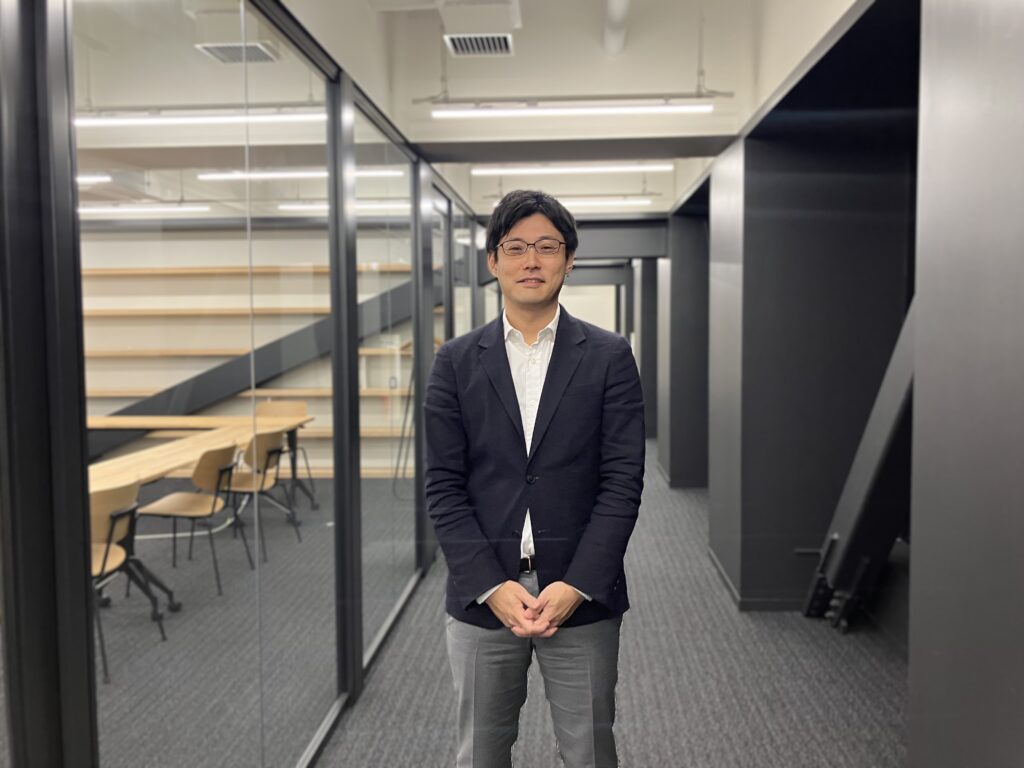We spoke to Professor Yamada of the Graduate School of Medicine at Kyoto University and Researcher Yamauchi of the Japan Research Institute, who are project members of the project "Supporting people with developmental disorders to demonstrate their abilities in the workplace," about their path to joining the project, their key points, and the society they would like to realize.

Please tell us what first made you interested in developmental disorders and how you came to participate in this project.
Mr. YamadaI originally graduated from the Faculty of Letters, and I liked English and classics, and I was interested in different cultures that were different from Japanese common sense. While studying infant developmental psychology, I read papers on autism spectrum disorder, and I became interested in the differences in how people see and feel. After that, I went on to medical school because I wanted to be involved in clinical practice, and I have been involved in treating people with developmental disorders, mainly children, at hospitals and clinics. I often get asked by adult patients about things that aren't going well at work and what they should do. I also hear stories of patients I've been treating since childhood struggling to continue working after they get hired. I thought about how I could approach the issue of employment, and decided to participate in this project that focuses on employment.
Researcher YamauchiI graduated from the Faculty of Life Science and Technology and conducted research related to cancer cells. I also studied and practiced sports science on a personal level. After joining the Japan Research Institute, I was involved in nursing care-related projects, but due to the commonality of our work in the welfare field, I was involved in a project related to developmental disorders. In fact, the predecessor to this project was a project in Otaru City, Hokkaido, where we held a PC game course for elementary, junior high, and high school students with developmental disorders to create voxel art (*). At the site, I was surprised at how quickly the children learned the tasks and the high quality of their works, and I felt that they had the potential to play an active role in society. Some people were working on the voxel art game that was the subject of the project, and I was able to convey to the children and parents that it was not just a game, but that it could lead to a career. This made me wonder if there was anything more I could do about developmental disorders, and I decided to participate in the current project.
(*) A 3D work created by combining cubes.
What are the highlights of this project?
Mr. YamadaI interact with people with developmental disorders in the hospital examination room, which is a very limited area of the patient's life. The employment that this project focuses on is closer to everyday life, so I find it refreshing to be able to approach it there. Also, while I usually interact with medical professionals, this project has allowed me to connect with a variety of people, and I have been stimulated by learning about the differences in understanding and perspectives on developmental disorders depending on their position.

Researcher YamauchiAs a think tank, it is a valuable opportunity to hear from Dr. Yoshimura and Dr. Yamada, who are involved in clinical practice in this project, and many other people, who have a voice close to that of the field. Also, I feel that this is a more trial-and-error approach than usual consulting work, and that it is truly starting from research. Members are freely exchanging opinions across organizational boundaries, and although it is challenging, it is progressing in an enjoyable way.
Mr. YamadaIt's true that we've developed a relationship where we can say anything we think about. Because the project has a sufficient time frame, I think it's one where we can think deeply.
What kind of society would you like to realize through this project?
Researcher YamauchiI want to create a society where people with developmental disabilities have more employment opportunities and can contribute to the profits of companies just like people with other jobs. However, if excessive consideration is given to people with developmental disabilities, the people working around them may feel that it is unfair. Therefore, rather than simply treating people with developmental disabilities specially, I think it is better to understand that they have strong and weak points, and think together about how to make use of their strengths and cover their weaknesses. If we can create relationships and a workplace atmosphere that makes it easy to work together within the scope of reasonable consideration, I think society as a whole will become more comfortable.

Mr. YamadaThis is related to what Yamauchi said, but I hope we can create a society where we can rely on each other well. As a doctor, I feel that the ability to rely on others well is important, not only for people with developmental disorders, but also for people who have developmental disorders. For example, at work, even if you are not good at something, it may not be difficult at all if you ask someone else about it. Also, there are times when you are good at something that many people are not good at. In the workplace, I think that you are often expected to be independent so that you can do it alone. However, focusing on what you cannot do and aiming to overcome it often does not work, and the person who is told to overcome it feels a great burden. I hope that through this project, we can get some hints to get closer to a society where we can rely on each other more.


